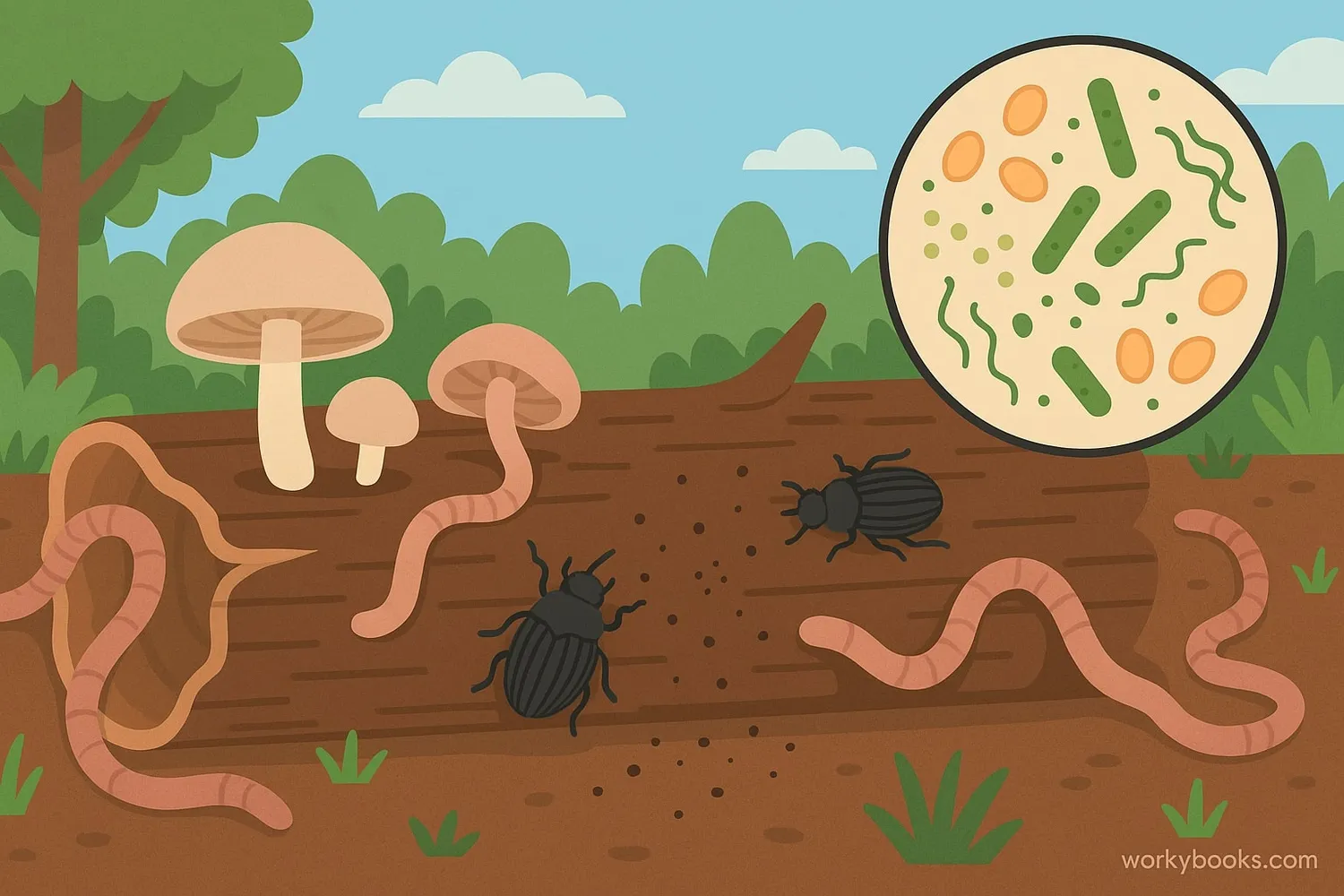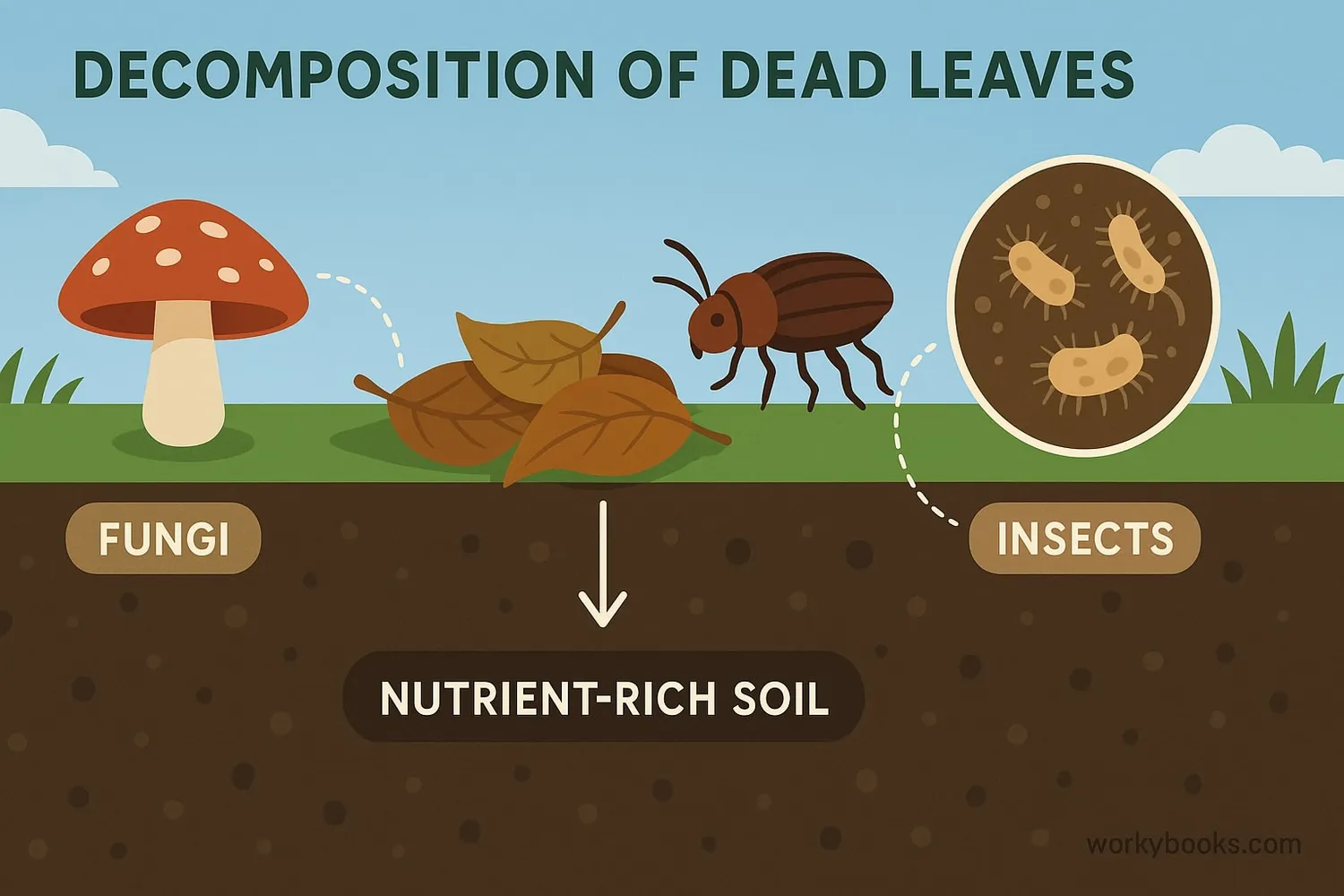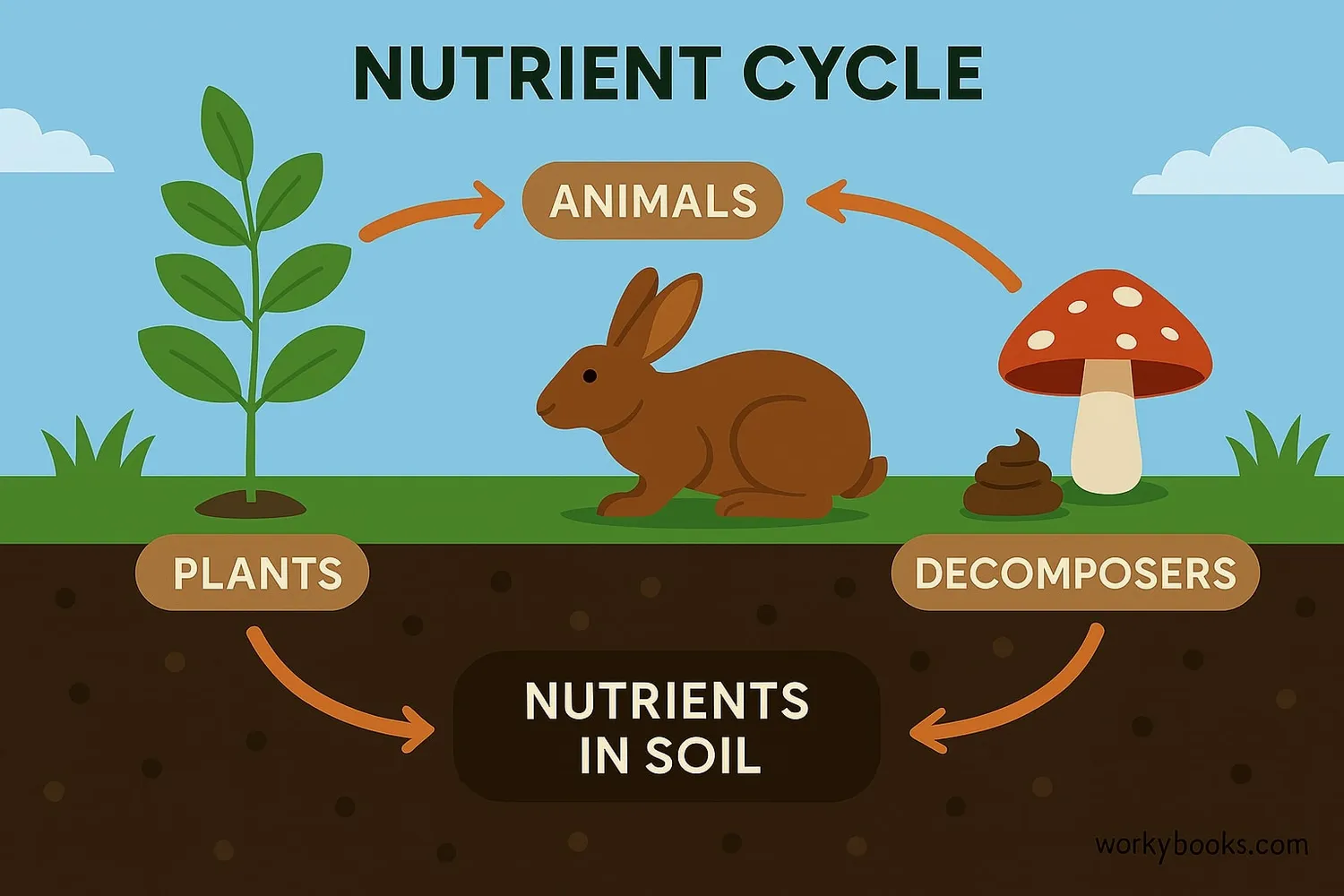Decomposers - Definition, Examples, Quiz, FAQ, Trivia
Discover how decomposers break down waste and recycle nutrients in ecosystems
What are Decomposers?

Decomposers are nature's cleanup crew! They're special organisms that break down dead plants, animals, and waste materials. Without decomposers, our world would be covered in piles of dead things!
Decomposers include:
• Bacteria - Microscopic decomposers that break down materials at the cellular level
• Fungi - Mushrooms and molds that digest dead matter
• Invertebrates - Earthworms, beetles, millipedes, and other insects
• Detritivores - Organisms like snails and slugs that eat decaying matter
These amazing recyclers turn dead material into nutrients that plants can use to grow, creating a continuous cycle of life!
Nature's Fact!
A single teaspoon of healthy soil contains billions of bacteria and miles of fungal threads - all working as decomposers!
How Decomposers Work

Decomposers work together in a natural recycling system. Here's how they break down dead matter:
Breakdown Begins
Detritivores like worms and insects start breaking down larger pieces
Fungal Action
Fungi release enzymes that break down tough materials like wood
Bacterial Work
Bacteria break down materials at the molecular level
Nutrient Release
Decomposers release nutrients like nitrogen and phosphorus
Soil Enrichment
Nutrients become part of the soil for plants to use
This decomposition process can take different amounts of time:
• Banana peel: 2-5 weeks
• Paper: 2-5 months
• Tree branch: 2-5 years
• Plastic bottle: 450+ years (not broken down by natural decomposers!)
Decomposers are especially important in food chains where they recycle nutrients back to producers (plants).
Decomposition Speed!
In tropical rainforests, decomposers can break down a banana peel in just 2 weeks! In colder climates, it might take months.
Why Decomposers are Important

Decomposers play a crucial role in keeping ecosystems healthy. Here's why they're essential:
Nutrient Recycling
They break down dead matter and return nutrients to the soil
Soil Enrichment
They create rich, fertile soil that helps plants grow
Waste Cleanup
They naturally remove dead material and waste from ecosystems
Without decomposers:
• Dead plants and animals would pile up everywhere
• Nutrients would be locked in dead matter instead of being reused
• Soil would become poor and unable to support plant life
• Ecosystems would eventually collapse
Decomposers complete the circle of life by returning nutrients to the beginning of the food chain!
Decomposer Quiz
Test your decomposer knowledge with this quiz! Answer all 5 questions to see how much you've learned.
Frequently Asked Questions
Here are answers to some common questions about decomposers:
Fun Decomposer Trivia
Discover some amazing facts about decomposers!
Microscopic Power
There are more decomposer bacteria in a tablespoon of soil than people on Earth! These tiny organisms work non-stop to break down organic matter.
Fungal Networks
Some fungi create networks that stretch for miles underground! The largest known fungus covers 2,385 acres in Oregon and is over 2,400 years old!
Worm Workers
Earthworms can recycle up to 20 tons of soil per acre each year! Their tunnels also help air and water reach plant roots.
Ancient Cleanup
Decomposers have been recycling nutrients for over a billion years! Without them, Earth would be covered in layers of undecomposed material.





